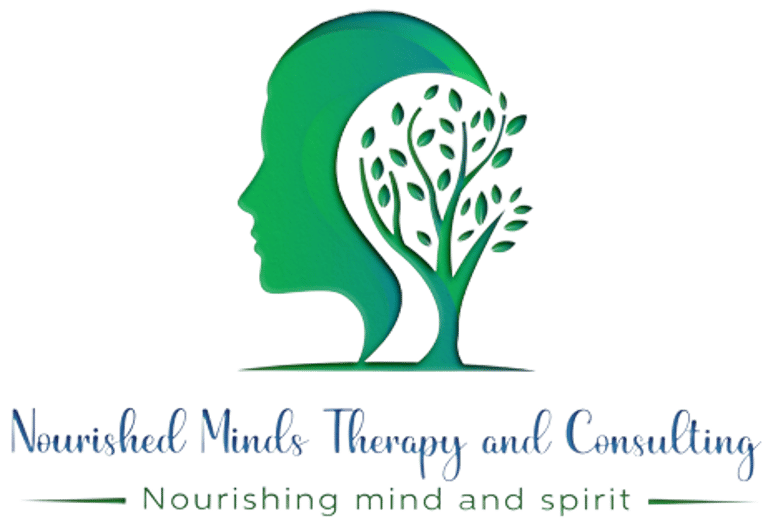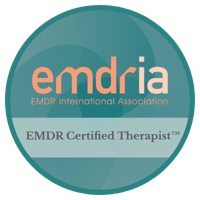Now scheduling EMDR Intensives!
Grief Therapy
Grief is a natural response to loss, yet it can feel anything but natural. It can be overwhelming, unpredictable, and deeply isolating. At Nourished Minds Therapy and Consulting, we provide a supportive space to process grief in all its complexity—whether your loss is recent or occurred long ago.
Understanding Grief
Grief is more than just sadness. It encompasses a range of emotions and experiences, including:
Emotional Responses: Sadness, anger, guilt, numbness, or even relief.
Physical Symptoms: Fatigue, headaches, changes in sleep or appetite.
Behavioral Changes: Withdrawing from others, difficulty concentrating, or restlessness.
Existential or Identity Shifts: Questioning meaning, purpose, or connection.
Grief doesn’t follow a linear process, and there is no "right" way to grieve. It unfolds uniquely for each person, often resurfacing when least expected.
Complicated and Prolonged Grief
For some, grief becomes persistent and feels impossible to move through. Complicated grief, also known as prolonged grief disorder, occurs when intense sorrow and longing remain overwhelming for an extended period, interfering with daily life.
Signs of complicated grief may include:
Persistent, intense yearning for the person or thing lost.
Difficulty accepting the loss, feeling stuck in grief.
Avoidance of reminders or an inability to stop ruminating on the loss.
A sense that life no longer has meaning or purpose.
Emotional numbness or persistent distress that doesn’t ease over time.
If grief feels unbearable or never-ending, therapy can help you find ways to process and integrate it so you can begin to live alongside your loss rather than being consumed by it.
How EMDR Can Help with Grief
Grief can sometimes feel like trauma, especially when the loss is sudden, unexpected, or deeply painful. Unresolved grief can keep the brain stuck in distress, making it difficult to process emotions or move forward.
Eye Movement Desensitization and Reprocessing (EMDR) is an evidence-based approach that helps the brain reprocess difficult memories, reducing their emotional intensity while allowing space for healing.
In grief therapy, EMDR can help:
Process painful memories or traumatic aspects of loss.
Reduce emotional distress associated with unresolved grief.
Address feelings of guilt, self-blame, or regret.
Create a healthier emotional connection to memories of what was lost.
Move through stuck grief without erasing the significance of the loss.
What Grief Therapy Looks Like
Grief therapy offers a safe space to explore your emotions, make sense of your loss, and develop ways to carry grief in a way that allows for healing.
Our work together may include:
Acknowledging and validating all emotions: There is no wrong way to grieve.
Exploring the impact of your loss: Processing what the loss means in your life.
Addressing unresolved grief or trauma: Using EMDR or other techniques to work through painful aspects of loss.
Developing coping strategies: Learning ways to navigate grief waves, regulate emotions, and reconnect with life.
Honoring your loss while moving forward: Finding meaning and integration without feeling like you have to "move on."
Who Can Benefit from Grief Therapy?
Grief therapy is for anyone experiencing loss, including:
Death of a loved one.
Loss of a relationship, job, or home.
Infertility or pregnancy loss.
Loss of health, identity, or future plans.
Traumatic or unexpected loss.
Whether your loss happened recently or years ago, grief therapy can help you process emotions, reduce distress, and find ways to move forward with both healing and remembrance.
You Don’t Have to Grieve Alone
Grief is deeply personal, but healing happens in connection. If you feel stuck in grief or need support in navigating your loss, therapy can help.
At Nourished Minds Therapy and Consulting, we provide compassionate, evidence-based grief therapy, including EMDR and other effective approaches to help you move through grief at your own pace.
Visit our Therapeutic Approaches Page or Contact Me to find out how we can tailor a plan to support your mental wellness.







